How Alternative Business Loans work for today’s Small Business
Working Capital Loan
Premier Business Lending provides needed capital for small businesses to help them maintain and keep their business growing. Whether it’s for payroll, inventory, supplies or expansion small business funding can get you the capital you need in days. While a traditional bank loan may be more cost effective, almost 85% of small businesses that apply for a bank loan are declined. Traditional lenders put a lot of weight on personal credit and time in business. The alternative lenders that we work with do not. Our lending partners can provide lending decisions in just 24 hours with minimal paperwork.
Working Capital Loan Requirements
To receive a working capital loan requires just 4 months of business bank statements, our one page application, driver’s license, voided check, and copy of your lease or mortgage statement (if you’re a home based business). Our expertise in finding working capital loans for small business owners is due to our strong relationships with the country’s top alternative private lenders and knowing what type of industries they like to work with. We also have our own in house financing division which will carefully review each file and provide the best available options for each business owner. Each has their own minimum thresholds relating to average daily balances, time in business, capital needs, FICO scores, industry, and cash flows. The minimal requirements are:
- Time in Business at least 12 months
- Minimum monthly revenues of $25,000
- Must have a business checking account
Expectations of A Working Capital Loan
When receiving an alternative working capital loan you should be mindful of several things. These are short term business advances ranging between 3 and 12 months. These are primarily for small businesses that cannot get traditional bank funding and therefore deemed higher risk. The cost of capital will be higher. The repayment of these loans is via a daily ACH debit from your bank account, Monday through Friday, or through your credit card processing (again accepting credit cards are not a requirement). The amounts that you can be approved for will be based on your revenues, typically 7% to 20% of gross yearly revenues. Again, these are short term loans for short term business issues such as paying taxes, making payroll, buying inventory, expansion, etc… Most importantly, these working capital loans are a way of getting capital fast. Many small business owners having pressing issues that require fast solutions. Premier Business Lending have fast solutions. You can receive capital in as little as 48 hours after submitting the few documents that are required. These are not for start ups or for buying an existing business. Underwriters are viewing you as a business owner and your experience at running the specific business as a way of determining how much to advance.


